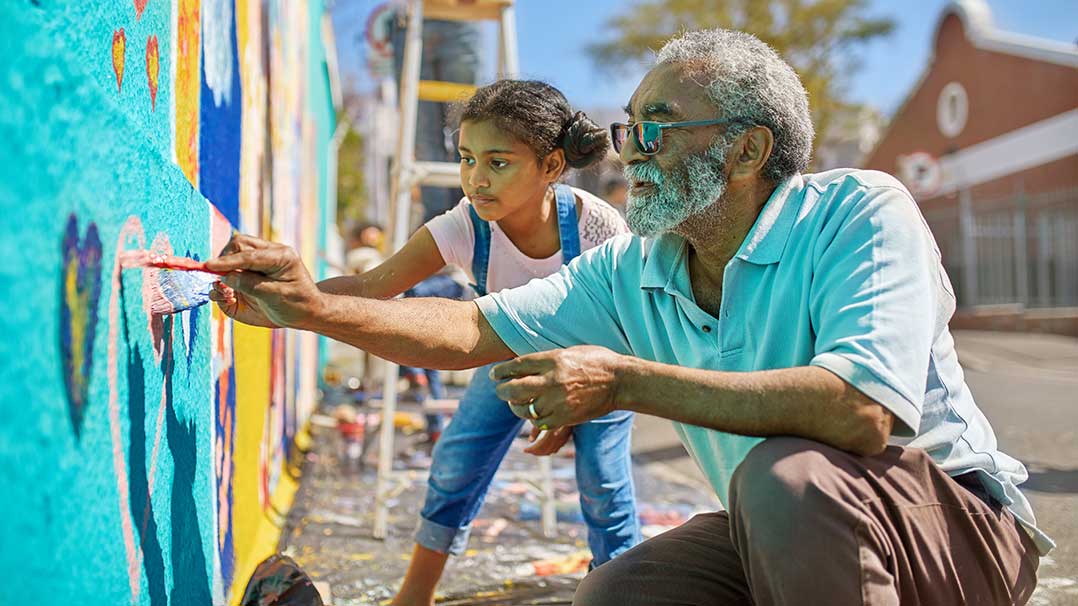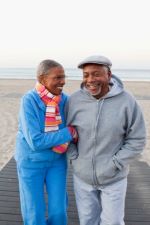It’s been a challenging summer already for many older Americans, and it’s not over yet.

Long, sunny days can be pure pleasure. For many older adults, however, danger can lurk in high temperatures. Fortunately, we all can take steps to ensure summer safety.
 Older adults tend to be more susceptible to heat-related conditions, often because they have pre-existing medical conditions or take prescription or over-the-counter drugs that limit the body’s ability to sweat and control its temperature, said Dr. Joseph B. “J.B.” Sobel, chief medical officer for Cigna's Medicare businesses, which serve hundreds of thousands of seniors across the United States.
Older adults tend to be more susceptible to heat-related conditions, often because they have pre-existing medical conditions or take prescription or over-the-counter drugs that limit the body’s ability to sweat and control its temperature, said Dr. Joseph B. “J.B.” Sobel, chief medical officer for Cigna's Medicare businesses, which serve hundreds of thousands of seniors across the United States.
The Centers for Disease Control and Prevention (CDC) estimate that more than 650 people in the United States die each year from heat-related illnesses. The majority are people 65 and older; other risk factors are living alone, being without access to air conditioning, and having underlying health conditions that put them at elevated risk.
However, heat-related illnesses and deaths can often be prevented. With that in mind, Dr. Sobel provides the following tips to help older adults stay safe during the summer.
Check the forecast each day
That way you know exactly what to expect. Pay special attention to heat advisories or warnings and take them seriously.
Stay indoors, in air conditioning, during excessive heat
If your home isn’t air-conditioned, spend the heat of the day someplace that is, such as a shopping mall, a movie theater, a library, or a family member’s or friend’s house. In many communities, senior centers, churches, and social service organizations provide cooling centers when the temperatures rise. If you aren’t running your air conditioning because you need help paying your utility bill, resources may be available to you. Go to https://cignacommunity.findhelp.com/ and enter your ZIP code to learn about programs that are available in your community.
Make sure to hydrate
Drink more water than usual. Don’t wait until you’re thirsty to drink. Avoid drinks containing alcohol.
Dress for the heat
Wear light, loose-fitting clothes in light colors.
Don’t overdo it
Limit strenuous activity. Take frequent breaks. Move slowly.
Remember to apply sunscreen
The majority of skin cancer cases are found in people older than 65. Also, sunburned skin makes it more difficult for your body to cool down. To reduce risk, you should use a sunscreen of 30 SPF or higher that the label says “blocks UVA and UVB” or has the words “broad spectrum.” Reapply every two hours.
Avoid the hottest part of the day
It’s safer to go out in the morning or the evening.
Monitor your medications
Some widely used medicines, including some available without a prescription, may affect your body’s ability to control its temperature or to sweat. Talk to your doctor or pharmacist if you have concerns.
If you become overheated, take action right away
Go to a cool place, rest, and drink plenty of water. Symptoms of heat-related illness include muscle cramps, headaches, nausea, and vomiting. If symptoms like these don’t go away or get worse, seek medical care.
In closing, Dr. Sobel advises caregivers to stay vigilant during hot weather and check on loved ones regularly. If you don’t live close to your loved one, make sure to have the name and number of a neighbor you can contact if needed.

Cigna Offers Medicare Advantage Customers Rides To Cooling Centers at No Extra Cost
As temperatures rise across the country, Cigna will provide its Medicare Advantage customers rides to community cooling centers to safely find relief from the heat. Any Medicare Advantage customer with a same-day transportation benefit can now use this service throughout the summer at no extra cost.